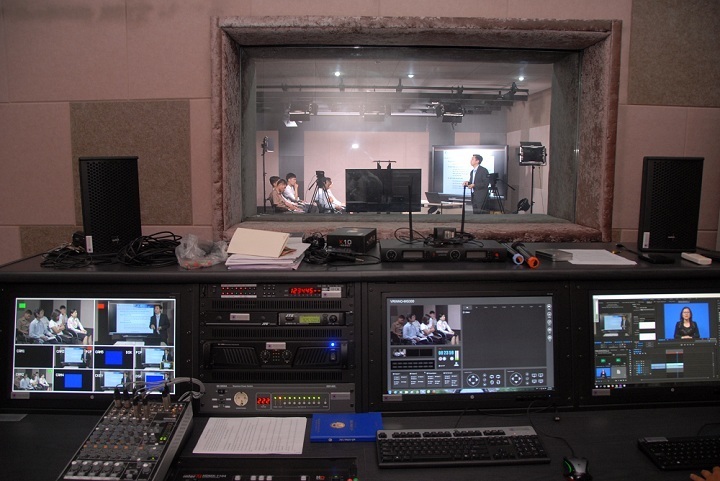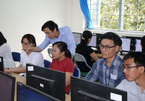HOU’s Rector Truong Tien Tung said that HOU was the first school applying IT in training and that it had paid attention to personalization right from the beginning.

HOU was the first school applying IT in training
He believes that in a ‘society of learning’, all age barriers must be removed and all people should be able to easily access lectures and knowledge anywhere and at any time.
Teachers’ lesson plans nowadays not only use textbooks, but also e-lectures using multimedia such as videos and graphics. During lessons, students can easily interact with teachers.
As the learning needs and capacity of each student are not the same, teachers act as the suppliers of the ‘information supermarket’, i.e. open education resources, and students can build specific learning programs for themselves.
“Obviously, IT is making a great contribution to helping learners not only get knowledge in classes,” he said. “Knowledge now can be brought into ‘clouds’ and learners can access the clouds to get learning materials suited for them."
At first, the school tried to develop online training in order to support personalization in learning. However, after a trial period, the school management board realized that online teaching could bring more value.
However, with this learning method, students need to be more proactive. Every student gets an account which allows them to access libraries to seek books for their studies.
The current student management system of the school is now ‘intelligent’ enough to remind students to participate in the learning process. However, students still need to figure out their study plans, or they won’t be able to fulfill their studies and obtain degrees.
HOU has a group of enthusiastic and experienced mentors who help students build plans at any time, through connections via the online training and management system.
After 30 years of pioneering open education, HOU now has nearly 15,000 students following online training courses.
To succeed with its online training model, Tung said it is necessary to create an environment similar to traditional class.
There must be an environment for students to study at home, and an environment for students to exchange views with lecturers and do teamwork exercises. And there must be a system to manage students.
In addition, it is necessary to build an electronic learning material system to serve students.
“We are currently building learning apps on mobile phones. In the future, students will be able to completely study on the apps,” he said.
Le Huyen - Thuy Nga

Harvard professor suggests digital transformation solutions for education in Vietnam
Vietnam’s recent efforts to cope with the Covid-19 pandemic and the determination to pioneer the digital transformation in the educational sector have been praised by international organizations and Harvard University professors.

Vietnam leads in digital transformation in education: UNICEF
Rana Flowers, Chief Representative of UNICEF in Vietnam, said Vietnam is leading other countries in digital transformation in the education sector.